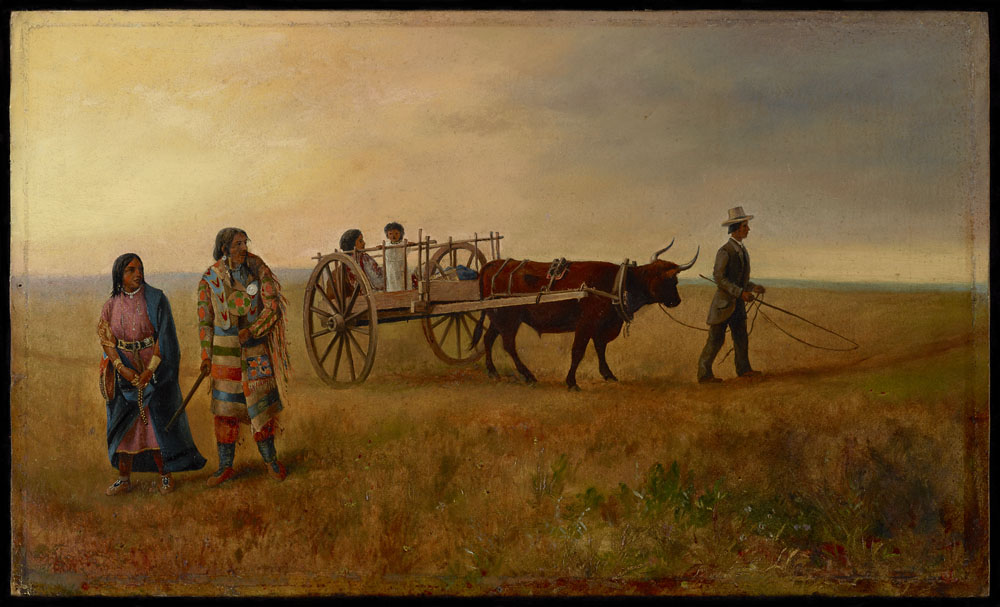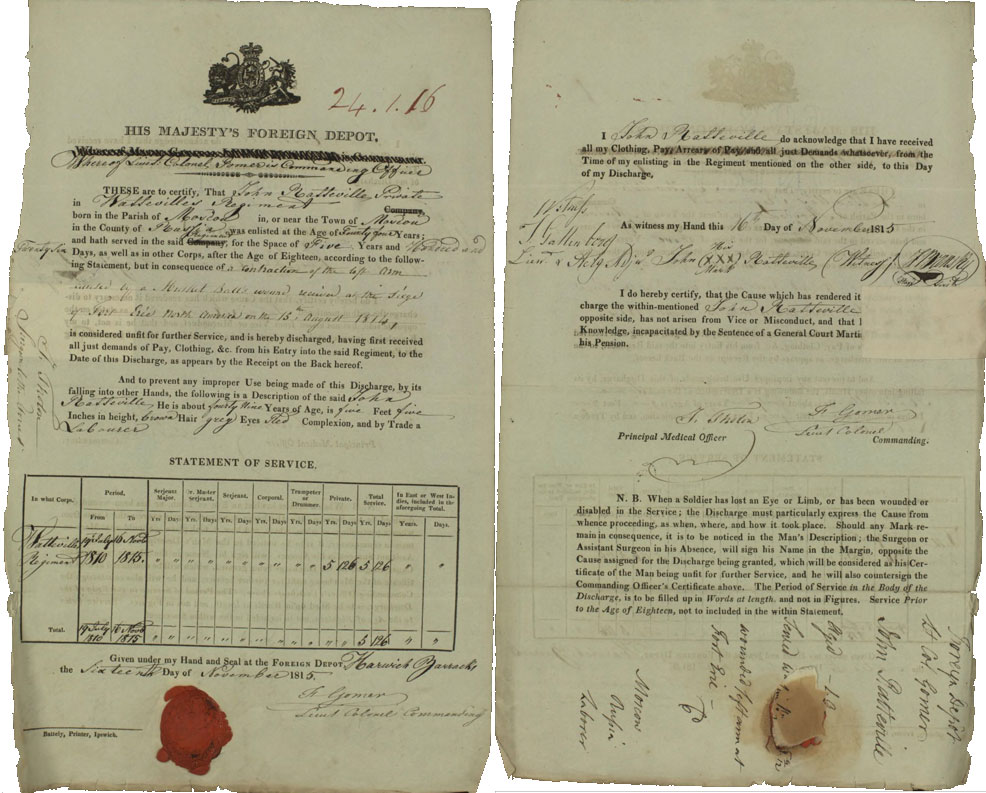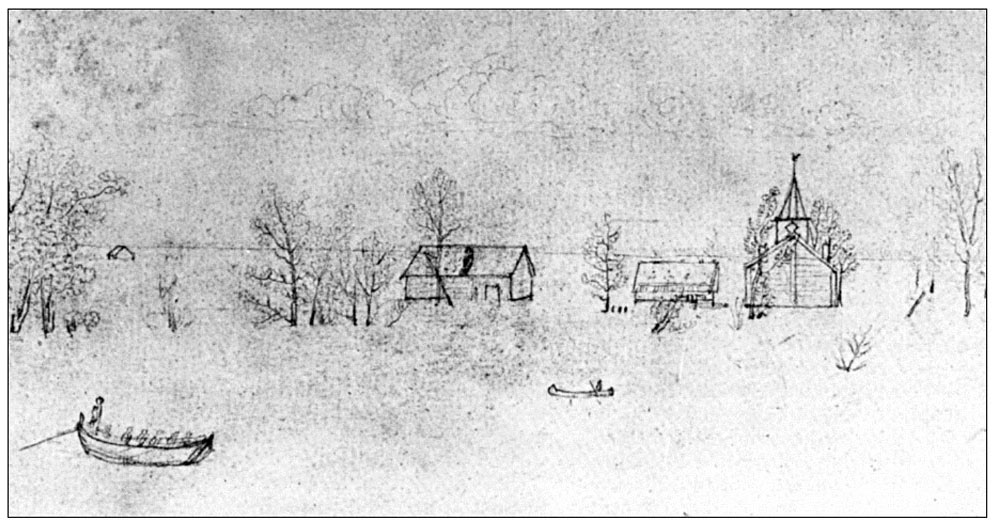Going Home

A Red River Cart at Calgary. Oil on commercial board. Circa 1887-1909. Library and Archives Canada, Edward D. Roper Fonds.
Old soldiers do not always make good farmers. Within just a few years, most of the veterans who had come west with Selkirk had had enough of farming and were keen to move elsewhere. Farm life was made harder by the constant fear of springtime flooding of the Red River. In 1821 a large group of settlers migrated south to Minnesota. They avoided the disastrous flood of 1822. More followed five years later, after the big flood of 1826. Among those who chose to head south to the United States was Andreas Korgto. We do not know exactly when or where he went, just that he had gone by 1826.
Korgto had experienced so many things since he arrived in British North America. He had served in some of the War of 1812’s decisive battles together with his fellow Lithuanians. He had opportunities to put down Canadian roots twice, first in Ontario and then in the Red River settlement.
What became of the other Lithuanian de Wattevilles? Their commanding officer, Col. De Watteville had ensured that they received the same treatment as any other British soldier. At the end of the war, many gathered at Sorel, Lower Canada (now Quebec). There they were given travelling money and sailed for England late in August 1816. They arrived in Portsmouth on September 28. Freed of further obligations, we believe many returned to Europe.
The badly wounded were also granted a small pension by the Royal Chelsea Hospital. Besides such combat-induced ailments as “musket ball in the leg,” many of the soldiers suffered from difficulties caused by long stretches of military service in adverse conditions. One Chelsea Pensioner form described a man’s medical issue as “Pulmonic affection and being worn out.”

Front and reverse sides of the discharge record for John Rattaville as a Chelsea Pensioner. National Archives of the UK at Kew.
Whether living in retirement in Europe or carving out a living in the United States, those Grand Duchy Lithuanians who survived the War of 1812 could feel proud of their contributions. Men who had served in Napoleon’s army took a risk in sailing across the Atlantic, left behind what was familiar, and took up life in a landscape that put them to the test.
In making the supreme sacrifice during the war or serving to preserve peace in the Red River Settlement, they contributed to the survival and development of Canada as a nation.


